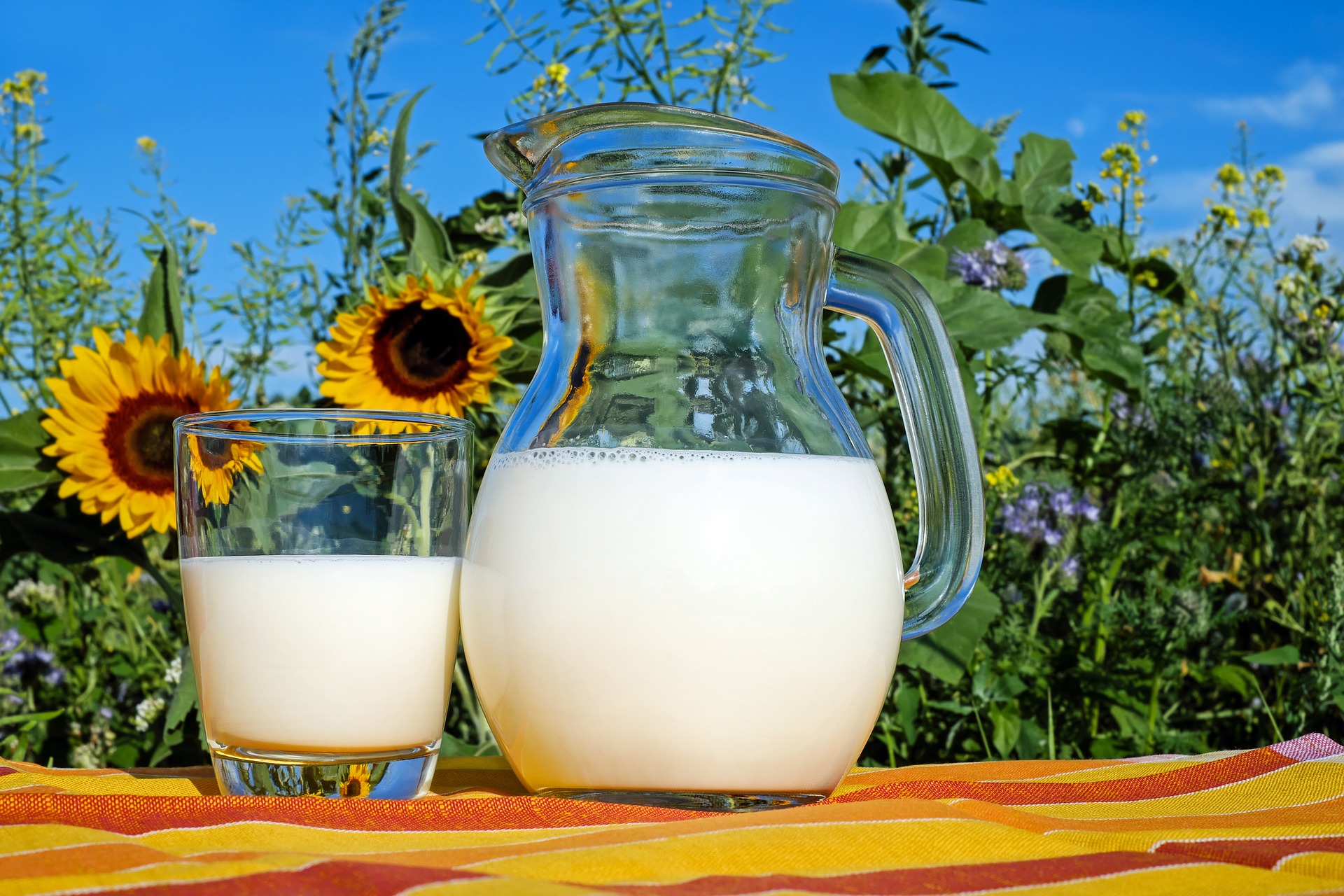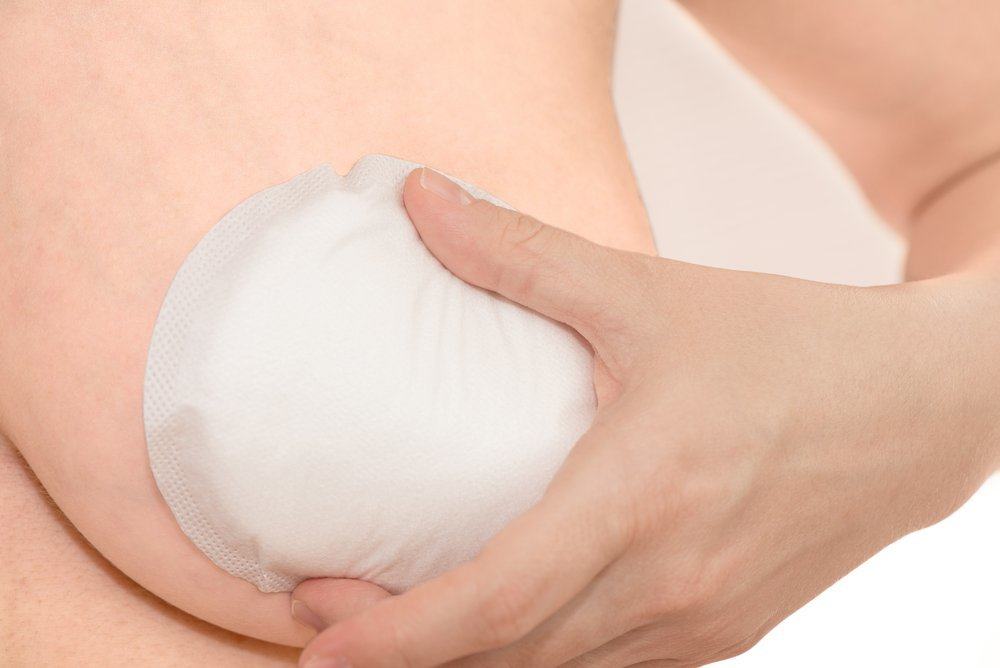Contents:
- Medical Video: The BEST BREASTFEEDING Advice Every Mom Needs To Hear!
- What are micronutrients?
- What micronutrients for nursing mothers must be fulfilled?
- 1. Calcium
- 2. Zinc
- 3. Magnesium
- 4. Vitamin B6
- 5. Vitamin E
- 6. Vitamin B1
- 7. Folate
Medical Video: The BEST BREASTFEEDING Advice Every Mom Needs To Hear!
For those of you who are breastfeeding, paying attention to food intake is important to ensure your nutritional needs are met. Not only macronutrients such as carbohydrates, proteins and fats alone, micronutrients such as vitamins and minerals should not go unnoticed. Actually what is a micronutrient? Why are micronutrients for nursing mothers important? This is the explanation.
What are micronutrients?
Micronutrients are nutrients (nutrients) needed by the human body in small amounts. These nutrients are still important for carrying out all bodily functions, but cannot be produced by the body itself. Micronutrients consist of vitamins and minerals that cannot be made by the body but can be obtained from food.
Although the micronutrients needed are small in number, their presence in the body is very essential. Certain micronutrient deficiencies in the body can cause serious health problems. Vitamin A deficiency, for example, can cause blindness and inhibit baby's growth.
What micronutrients for nursing mothers must be fulfilled?
1. Calcium
The first micronutrient for nursing mothers is calcium. Many nursing mothers don't pay attention or don't even notice calcium intake needs they. This is because dairy products that are usually rich in calcium are never considered to be part of the main food menu.
In fact, nursing mothers need a daily calcium intake of 1,200 mg. Especially if you are breastfeeding when you are under 25 years old.
Low calcium intake actually will not affect calcium concentration in breast milk. However, the effect of breastfeeding on bone density, especially if you breastfeed your baby for a long time, is not known for sure.
There is nothing wrong if you meet the daily needs of calcium intake from milk, cheese, yogurt, fish, tofu, bok choy, broccoli, cabbage and green radishes.
2. Zinc
There are no indicators that can be used to find out whether daily zinc intake You have been fulfilled or not. However, your daily zinc intake will increase 4 to 13 times higher during breastfeeding. So this micronutrient for nursing mothers is important for you to pay attention to.
A study in Brazil found that seven breastfeeding women with a daily zinc intake of 8.4 mg per day, 59 to 84 percent were absorbed higher by the body. Increased daily zinc intake will always increase and be very large during one year of breastfeeding.
Although there is no danger caused by lack of zinc intake, you must still meet the needs of zinc during breastfeeding. Eating beef, chicken, seafood, eggs, whole grains, peas, and yogurt, is one way to meet your daily intake of 12 mg per day.
3. Magnesium
When breastfeeding, the body needs two to three times more intake magnesium, and the body will absorb magnesium 50% higher at this time.
As reported by Baby center, breastfeeding women aged 19-30 years need a daily intake of magnesium of 310 mg. While breastfeeding women aged 31 years and over need a daily magnesium intake of 320 mg.
You can get magnesium from nuts, seeds, green vegetables, shellfish and oysters. These micronutrients for nursing mothers will benefit you and your little one.
4. Vitamin B6
Intake vitamin B6 being low during breastfeeding can adversely affect infants and mothers. There was a case reported about three cases of babies with central nervous system disorders associated with mothers who lack vitamin B6.
This vitamin is important for brain development and keeps the nervous system and immune system healthy. As reported Mediline Plusthe daily intake of vitamin B6 needed by breastfeeding mothers aged 18 years and over is 100 mg per day.
You can get it from bananas, poultry, meat, fish, potatoes, sweet potatoes, spinach, watermelon, peas, cereals, and nuts.
5. Vitamin E
According to Jan Riordan, author of the book Breastfeeding and Human Lactation, vitamin E can prevent it anemia in the baby after birth and is able to protect the retina of your baby's eyes and lungs.
However, micronutrients for nursing mothers are often ignored. Padhaal the need for a daily intake of vitamin E for nursing mothers is 19 mg or 28.4 IU per day.
Foods that are a source of vitamin E are nuts such as almonds and peanuts, seeds including sunflower seeds, vegetables and fruits such as spinach, broccoli, mango, and tomatoes.
6. Vitamin B1
Apart from keeping your nervous system healthy, this micronutrient for nursing mothers is needed in turning food into energy.
To get that benefit, you can eat rich foods vitamin B1 like eggs, milk, whole grains of bread, beef, fresh and dried fruits, and vegetables like peas.
The daily intake of vitamin B1 needed by nursing mothers is 1.5 mg per day. This amount is easily obtained from daily meals so it is usually not necessary to take supplements.
7. Folate
Folate is a form of water-soluble vitamin B complex. Micronutrients for nursing mothers are needed in the "development" of the body because they are multifunctional, ranging from producing DNA to forming red blood cells.
Without enough folate, the production of red blood cells will always be below normal so you can easily suffer from anemia. Folate also plays a role in helping cell division and rapid growth. The folate intake needed by nursing mothers is 500 micrograms (μg) per day.
Some folate-rich foods include:
- Vegetables are green, like spinach, broccoli, and lettuce.
- Nuts, like peas.
- Fruits, such as melons, bananas and lemons.
- Folate-fortified foods, such as bread, cereals and juices.












